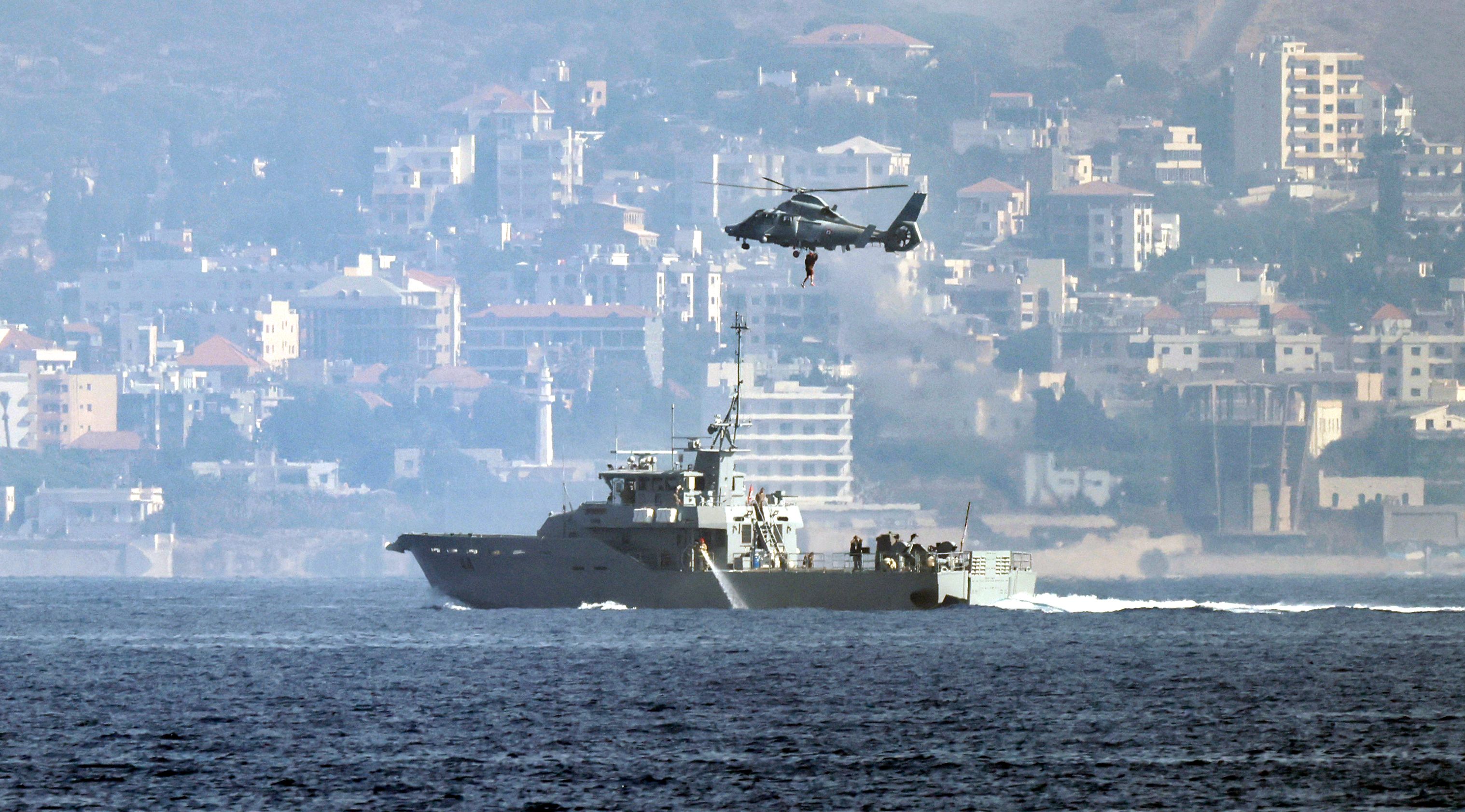
by Arab news – Najia Houssari –– BEIRUT: Total Energies, along with its partners Eni and QatarEnergy, on Tuesday launched exploration activities in Block 9 within Lebanon’s territorial waters. The companies are searching for commercial quantities of gas and oil that Lebanon is pinning its hopes on to revive its collapsing economy. The drilling is set to start on Aug. 24, as announced by Energy Minister Walid Fayad. Prime Minister Najib Mikati and Parliament Speaker Nabih Berri visited the drilling platform Transocean Barents, accompanied by Fayad and Minister of Public Works and Transport Ali Hamieh, as well as Lebanese petroleum officials to attend a ceremony to announce the exploration. Platform 9 is located about 120 km from Beirut.
During the visit, Lebanese officials were briefed on preparations for the drilling. Berri and Mikati toured the drilling platform to oversee the logistics for the oil and gas exploration in Block 9 within Lebanon’s territorial waters. Berri said he hoped that “in a few months, God would bless Lebanon with a flow of his grace, marking the beginning of solving the economic crisis that Lebanon and its people are experiencing,” and that the Lebanese would reach a consensus on electing a president who would initiate a political solution. Mikati said he wished that “the upcoming days bring signs of good fortune to help Lebanon address the numerous crises it is facing, and that everyone cooperates in the upcoming phase to halt the deterioration we are witnessing on all fronts.”
The delegation flew from Beirut’s airport to the drilling platform in a TotalEnergies helicopter. Romain de La Martiniere, general manager of TotalEnergies in Lebanon, said the exploratory well “will enable us to assess hydrocarbon resources and production potential in this area. The company holds a 35 percent working interest in Block 9, alongside its partners Eni (35 percent) and QatarEnergy (30 percent). Lebanese officials continue to delay the implementation of reforms required by the international community for assistance.
Reformists dismissed the notion of using potential oil wealth to offset the deficit faced by the treasury without holding those responsible for this deficit accountable. Ibrahim Mneimneh, a reformist MP, said: “Do not deceive people with illusions.” He told Arab News: “The crux of the political dispute with this political class lies in their perception of the country’s resources as a hen laying golden eggs meant to conceal their corruption, ventures and financial strategies that have driven the nation to its present state.” He said the issue “is not oil or gas; it involves the embezzlement of the nation’s resources. Those responsible must face consequences, not pardons for past actions. “Furthermore, the exploration process has yet to commence, and even when it does, it remains uncertain whether it will yield commercial quantities or merely fulfill the country’s immediate needs.”
He added: “Even if quantities are discovered, determining whether we possess oil wealth requires the next seven years. Thus, hastiness in thought is nothing but delusions.” Mneimneh questioned “the rationale behind connecting the sovereign wealth fund to public funds,” and said: “We must address the financial gap and tackle the task of restructuring banks and enacting various necessary reforms. Prioritizing the sovereign wealth fund at this time is unacceptable; it can wait, given that there exist other pressing priorities.” The repercussions of the economic crisis continue to affect state institutions. The latest manifestation of this is a warning issued by Army Commander Gen. Joseph Aoun, who reiterated that the military institution grapples with crises to the extent that it possesses only a one-month supply of gasoline. If this stock is not replenished, the army will be incapable of conducting patrols beyond a month. This warning considers that fuel reserves for the institution used to suffice for an entire year.



